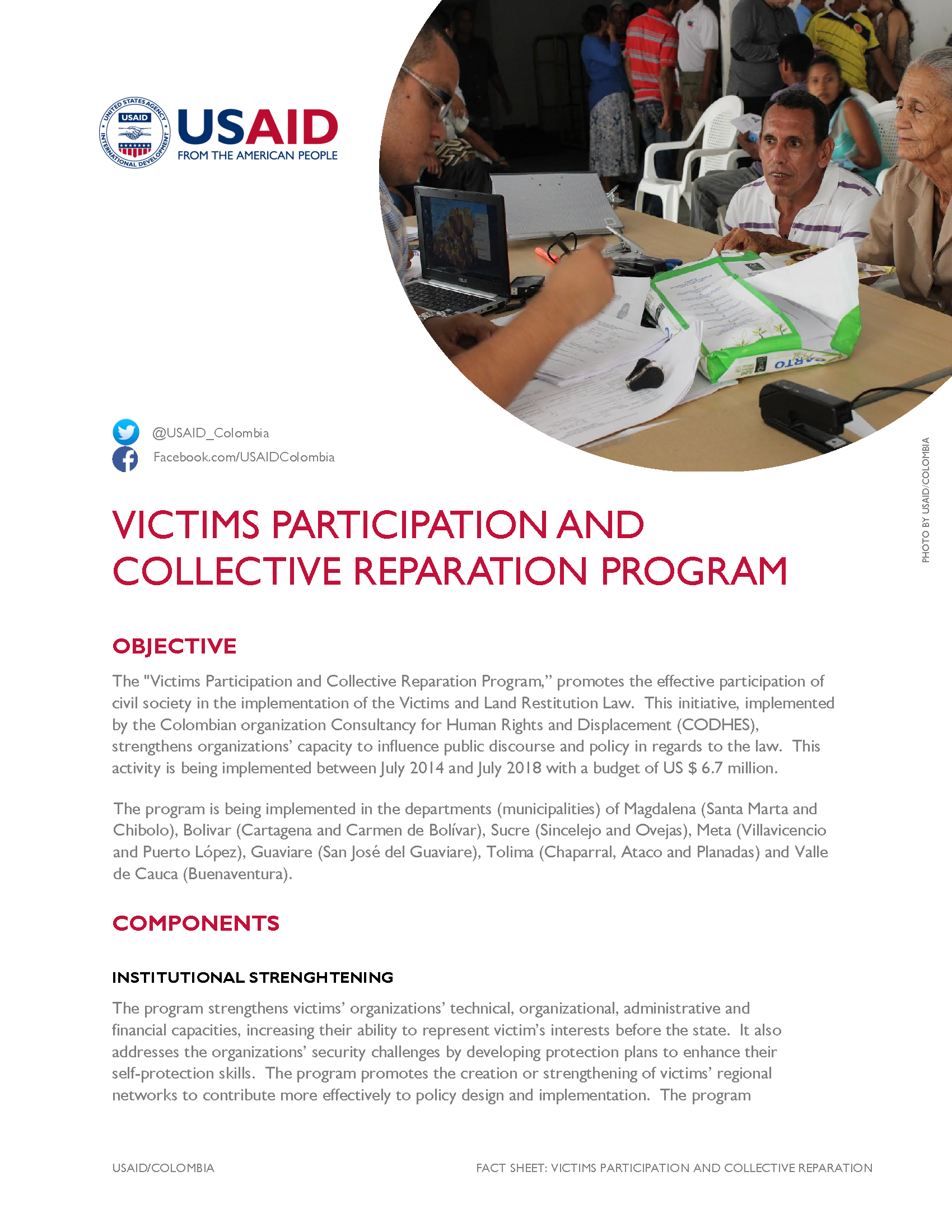OBJECTIVE
The "Victims Participation and Collective Reparation Program,” promotes the effective participation of civil society in the implementation of the Victims and Land Restitution Law. This initiative, implemented by the Colombian organization Consultancy for Human Rights and Displacement (CODHES), strengthens organizations’ capacity to influence public discourse and policy in regards to the law. This activity is being implemented between July 2014 and July 2018 with a budget of US $ 6.7 million.
The program is being implemented in the departments (municipalities) of Magdalena (Santa Marta and Chibolo), Bolivar (Cartagena and Carmen de Bolívar), Sucre (Sincelejo and Ovejas), Meta (Villavicencio and Puerto López), Guaviare (San José del Guaviare), Tolima (Chaparral, Ataco and Planadas) and Valle de Cauca (Buenaventura).
COMPONENTS
Institutional Strenghtening
The program strengthens victims’ organizations’ technical, organizational, administrative and financial capacities, increasing their ability to represent victim’s interests before the state. It also addresses the organizations’ security challenges by developing protection plans to enhance their self-protection skills. The program promotes the creation or strengthening of victims’ regional networks to contribute more effectively to policy design and implementation. The program focuses on key segments of victims – e.g. Afro-Colombians, women, trade unions, journalists, youth, indigenous organizations, and small farmers.
Support Victims and Civil Society Organization Initiatives That Promote Victim Rights
Through a grants fund of US $2.8 million, the program supports local initiatives that defend, protect and promote individual and/or collective victim´s rights to justice, truth and integral reparation. The fund supports civil society organizations, non-governmental organizations, think tanks, and universities that promote the collective reparation processes, assist victims, and/or work in public policy advocacy.
Promoting Victims’ Participation in Collective Reparation Processes
The program builds the capacity of victims and their organizations to communicate with and advocate before the government (national, regional and local) on collective reparation issues. While this work is focused on strengthening and supporting collective reparations processes in four designated regions, the results will help inform national public policy on issues such as restitution, compensation, rehabilitation, satisfaction and non-repetition guarantees.
RESULTS
- Trained more than 1,900 civil society leaders and members of victims’ organizations in victims’ rights, mechanisms for participation, collective reparation, individual reparation, and safety and self-awareness.
- Trained 170 victims’ community leaders to advise and accompany victims’ groups.
- Supported 13 victims’ roundtables to include their demands in local and regional development plans.
- Strengthened the capacity of 146 victims’ organizations.
- Supported 53 collective and individual reparations initiatives.
- Supported 2,500 individual cases to access assistance and initiate the reparation route through the Victims’ Unit.








Comment
Make a general inquiry or suggest an improvement.